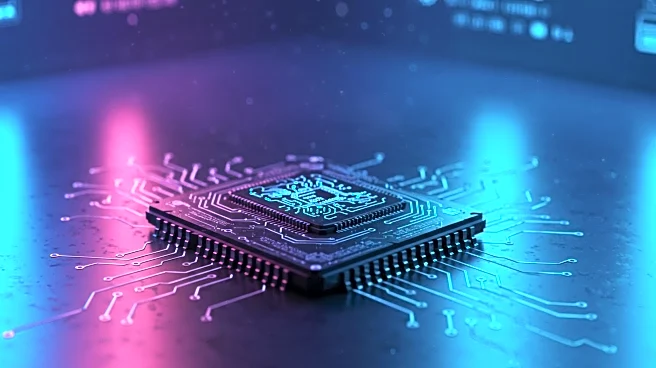What's Happening?
Sam Altman, CEO of OpenAI, is reportedly co-founding a new brain-chip startup called Merge Labs, aiming to develop brain-computer interfaces (BCIs). These devices, which involve implanting electrodes near the brain, are designed to allow humans to control digital devices with their thoughts. Merge Labs is raising funds at a valuation of $850 million, with significant backing expected from OpenAI’s Startup Fund. Altman will co-found the company alongside Alex Blania, head of World ID, but will not be involved in daily operations. This venture will compete directly with Elon Musk’s Neuralink, which has already begun clinical trials and received regulatory approvals for its brain-chip technology.
Why It's Important?
The development of brain-computer interfaces represents a significant advancement in technology, potentially transforming how humans interact with digital devices. This competition between Altman and Musk could accelerate innovation in the field, impacting industries such as healthcare, where BCIs could aid individuals with speech and vision impairments. The rivalry also highlights the growing intersection between AI and neuroscience, with implications for future human-machine integration. Stakeholders in tech and healthcare stand to gain from breakthroughs, while ethical and regulatory challenges may arise as these technologies evolve.
What's Next?
Merge Labs will continue to raise funds and develop its brain-chip technology, potentially leading to clinical trials and regulatory approvals similar to Neuralink. The competition between Altman and Musk may intensify, with both companies striving for technological superiority. Observers can expect further developments in AI-driven brain-chip capabilities, possibly influencing public policy and ethical standards in the tech industry.
Beyond the Headlines
The emergence of brain-computer interfaces raises ethical questions about privacy, consent, and the potential for human enhancement. As these technologies advance, society may need to address the implications of merging human cognition with digital systems, including the impact on identity and autonomy. Long-term, this could lead to shifts in cultural perceptions of human-machine relationships.









